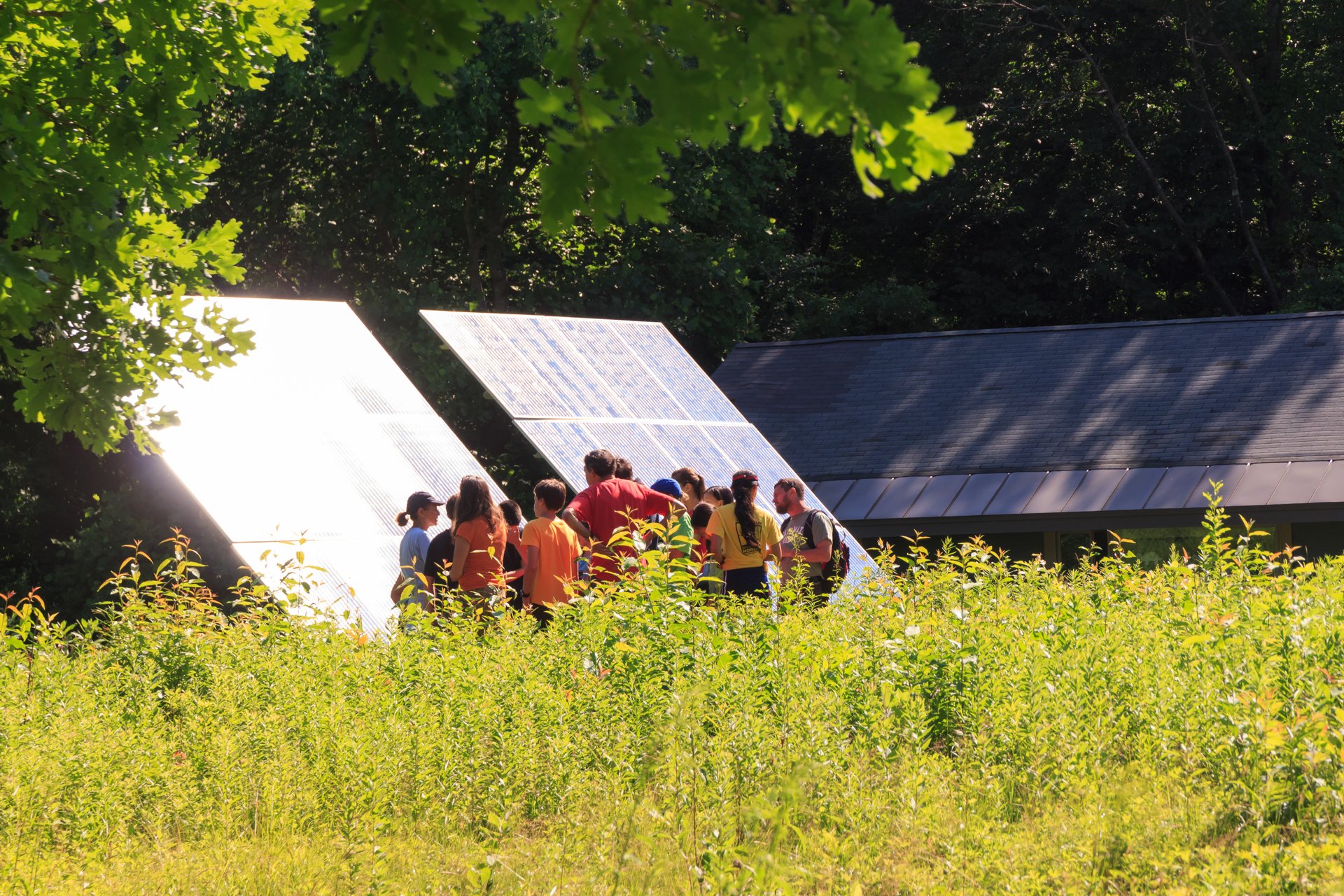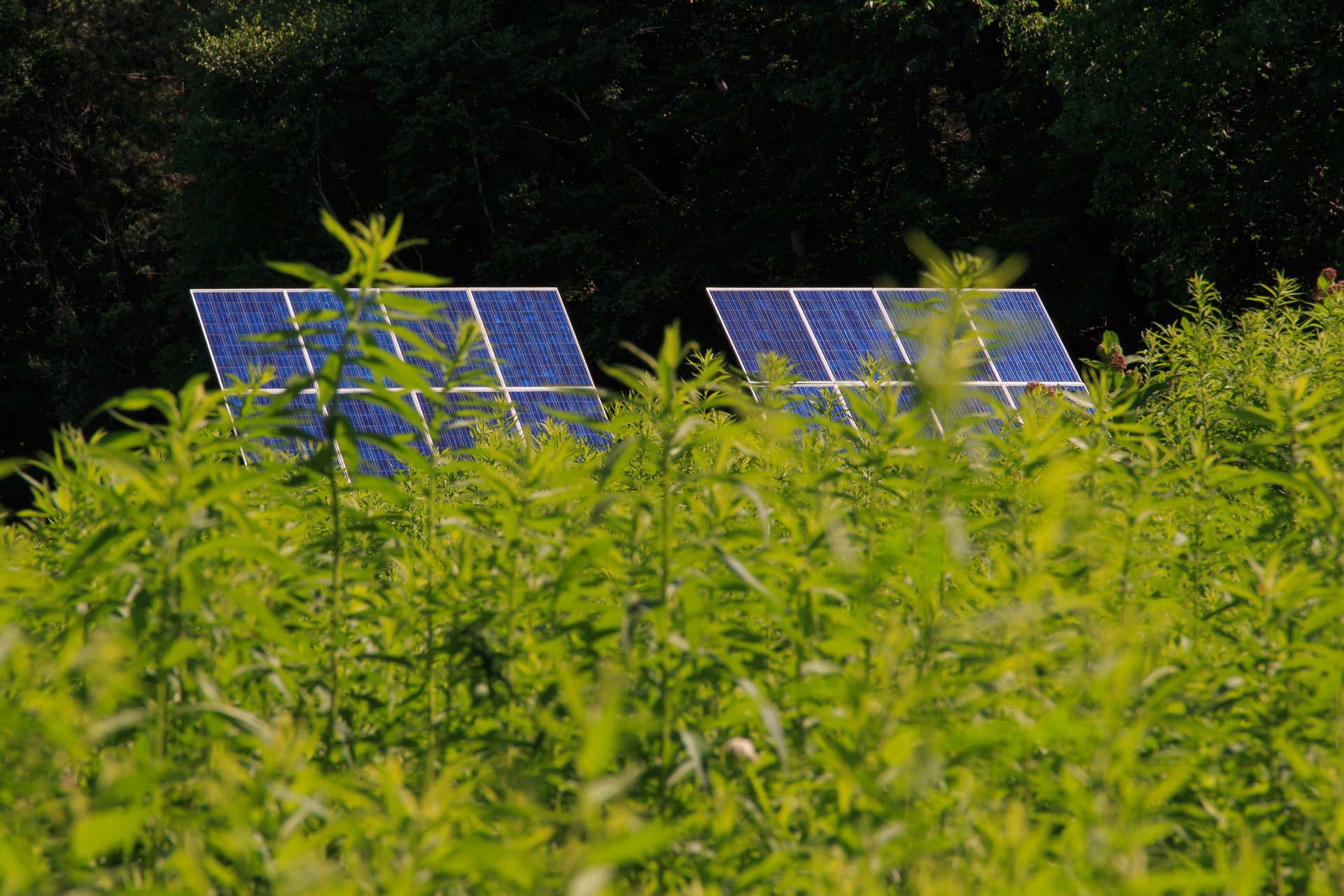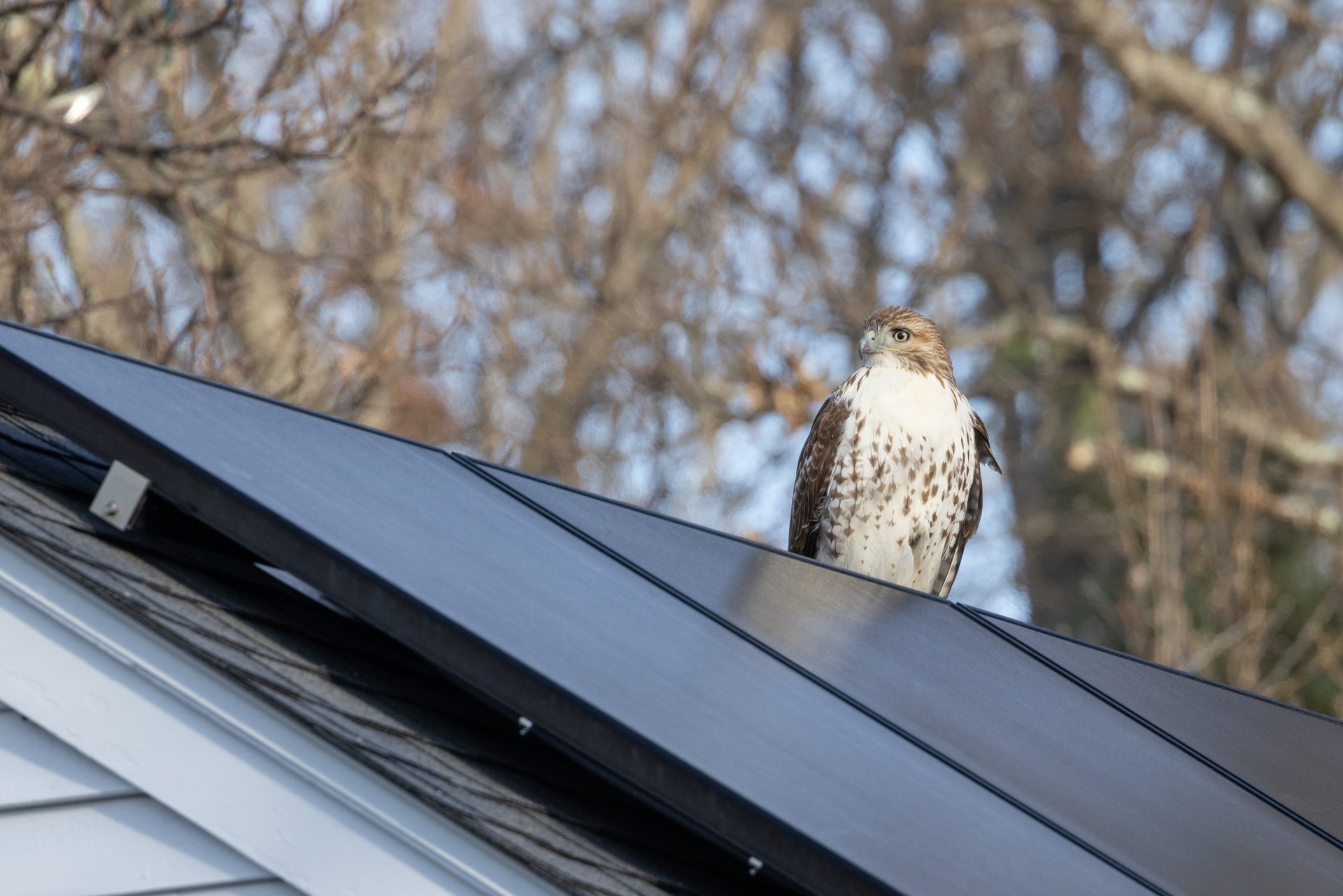Advocate
A Campaign to Grow Solar and Protect Nature
Our Campaign to Grow Solar and Clean Energy While Protecting Nature
Massachusetts needs to transition away from the dirty fossil fuels that are overheating our planet and destroying our ecosystems. To do that, we need to build a lot more clean energy—and quickly.
Unfortunately, many large solar projects developed in Massachusetts over the last decade have been built at the expense of forests, wetlands, and top-quality farmland. Since 2010, over 5,000 acres of forest, wetlands, and farmlands have been developed for solar in Massachusetts, resulting in carbon emissions equivalent to 110,000 cars, loss of crucial habitat for wildlife, and the conversion of farmland.
This pattern isn’t good for the planet. Natural lands absorb heat-trapping pollution from the atmosphere. When we convert them to clean energy projects, we’re using one tool against climate change but losing another. We must find a way to scale up solar and nature together. The good news is that in Massachusetts, we have the tools and information to identify better sites for new clean energy projects while also protecting the nature we have.
To succeed, we need your support. Sign up today
Generating Clean Energy Without Risking Forests and Farms
Since 2010, over 5,000 acres of forest, wetlands, and farmlands have been developed for solar in Massachusetts, resulting in carbon emissions equivalent to 110,000 cars, the destruction of crucial habitat for wildlife, and the conversion of farmland.
In 2023, Mass Audubon teamed up with Harvard Forest to produce Growing Solar, Protecting Nature, an analysis of Massachusetts’ options for more responsible siting of future solar energy projects.
This work showed that we have spaces to build significantly more solar on existing rooftops, parking lots, and already developed lands, while leaving our most ecologically and carbon-rich forests and productive farmlands intact. But to achieve this outcome, we also need recommended important changes to state policies, regulations, and incentives for siting clean energy resources.
Campaign Priorities
Since we released our work in 2023, state energy leaders have initiated major changes to clean energy siting policies that have the potential to improve protection of forests, farmlands, and wildlife habitat areas as more clean energy is sited and developed.
Implement Clean Energy Legislation
An Act upgrading the grid and protecting ratepayers, signed into law in November 2024, created s a new framework for siting and permitting clean energy infrastructure, including solar facilities. Mass Audubon provided significant input on the legislation as an appointed member of the state’s Commission on Energy Infrastructure Siting and Permitting.
The intent of this law is to speed up permitting of clean energy projects while minimizing impacts on nature and environmental justice communities.
It requires a data-driven, statewide approach to identify low-impact sites, and implements a standard for all projects to avoid and minimize impacts on irreplaceable natural resources. Energy developers will be required to mitigate impacts that cannot be avoided. It also clarifies the role of cities and towns in local permitting.
Now, the state is working with stakeholders and local governments to start implementing this new system for solar and energy siting. Mass Audubon is advocating for guidance and criteria stringent enough to protect as much nature as possible by focusing solar siting on already-developed or other low-impact parcels. We will also push for a strong mitigation program so that developers pay for any impacts to nature which do occur.
Ensure Incentives for Solar Siting Prioritize Nature
The state Department of Energy Resources (DOER) subsidizes certain solar projects through its Solar Massachusetts Renewable Target (SMART) program. This ratepayer-funded incentive program supports thousands of solar energy projects in Massachusetts. The incentives for solar development under SMART are larger or smaller depending on the type of system that gets built. For example, solar panels located on a landfill receive additional incentives for using a site with low impacts on the environment.
Our view is that state funding of solar should aim to do even more projects on rooftops, parking lot canopies, and sites for ground-mount projects. Conversely, public dollars should not be available for private developers to convert some of the state’s best forests, farms, and ecosystems, which themselves are instrumental to fighting the climate and biodiversity crises.
The state is currently updating its rules for SMART, with the goal of steering more solar onto previously developed lands including rooftops and parking lots. Mass Audubon will leverage the voices of our members and supporters to ensure that state incentives are not helping developers to convert our best forests, farmlands, and wetlands.
Lower Costs of Rooftop Solar
Finally, we also think the state can make it easier and cheaper for homeowners and businesses to add solar to their own rooftops. We’re supporting an approach used in other countries and states to permit rooftop solar quickly, thereby reducing overhead costs for solar and helping to reduce consumers’ energy bills. Along with partners, we’re aiming to add this to the energy affordability bill currently under consideration by the Legislature.
How You Can Help
To achieve these priorities, we’ll need to add thousands of voices from Massachusetts residents who also believe we can protect nature while locating and producing clean energy responsibly.
The state will soon be asking for feedback on draft regulations which will implement new environmental criteria and standards for siting solar and other new clean energy projects. Mass Audubon and our partners are advocating for regulations and criteria which protect high-value forests, , farmlands, and water resources, and will avoid inequitable impacts to communities which already host significant amounts of energy infrastructure.
To succeed, we need your support. Join our energy siting advocacy list
Dive Deeper

Learn More About These Policy Changes

Read Our Position on Solar Energy
Learn how Mass Audubon considers the balance between protecting nature and developing clean energy

Become an Advocate
Help us grow solar and protect nature by joining Mass Audubon's team of grassroots nature and climate advocates
Stay Connected with Policy and Advocacy
Learn about opportunities to advocate for our transformative policy agenda



